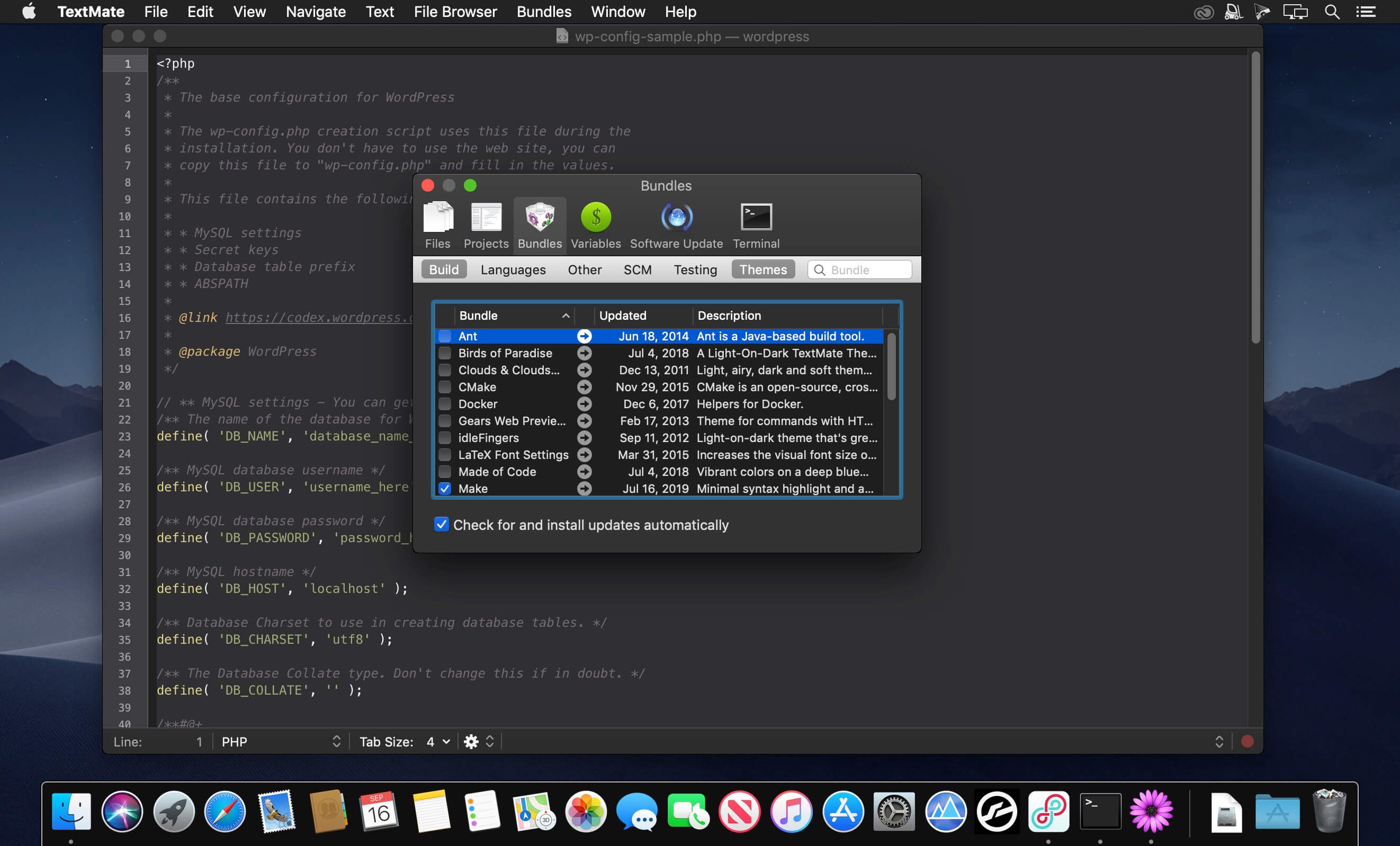

Version 2.x does introduce a Finder-level file browser but that does not replace the Project Drawer. Version 2.x of this outstanding text editor introduces the whiplash-inducing removal of the Project Drawer! Without this feature I cannot use the program. There is a gallery of screencasts showcasing more features at macromates

When you install on an intel computer, Homebrew will install binaries compiled specifically for intel. I also recomment using Homebrew now for Intel. Everything I have tried so far simply works without issue. Everything you do within that shell session will be within an intel-emulated environment. The key to doing this is to start up a new unix shell like this:Įnv /usr/bin/arch -x86_64 /bin/zsh -loginĪlthough zsh is the new default shell (as it should have always been), you can use bash or tcsh or whatever suits you. If you have intel-compiled command-line software (like the current CCP4 suite), it can still be used with Rosetta2. To install PyMOL and COOT with homebrew, see my notes linked here.In addition, Homebrew will install an X11-independent version of the software whenever possible.

Also, you can install native versions of Coot and PyMOL and many other open-source software packages that structural molecular biologists favor. I now recommend using Homebrew rather than Fink, primarily because Homebrew is far more up-to-date, and runs natively on M1 processors and on Intel processors (automatically picking the right one for your computer), whereas fink (currently) relies on Rosetta2 as an adapter. Most stuff compiles cleanly on the new Apple Silicon/M1x processors without drama, (invoking compiler-type arm64).


 0 kommentar(er)
0 kommentar(er)
